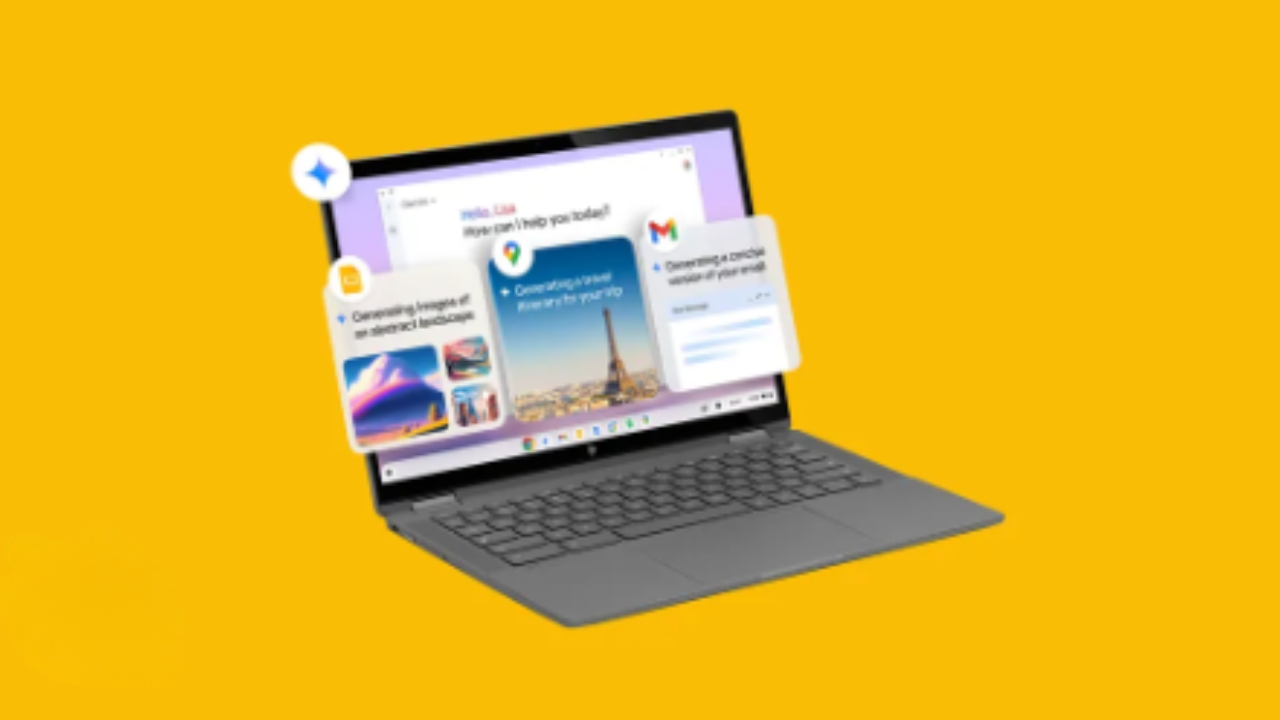Here’s a roundup of this week’s AI news.
Google Adds Gemini to Chromebook Plus
Google is adding its Gemini AI assistant to Chromebook Plus − and it comes with a dedicated icon to activate the capability.
Chat with Gemini, ask it to help polish your writing, brainstorm ideas, edit photos and more. The laptops start at $350.

Help me write. This feature generates content following a user’s prompt. It can also rewrite existing text to make it better, more formal, shorter, to change the tone or do other things. The feature can also make suggestions.
Generate wallpaper and video call backgrounds with AI. Use prompts or choose from pre-written prompts to create a custom background.
Magic Editor on Google Photos. Exclusive to Chromebook Plus, this feature makes it easier to edit photos, such as moving objects in an image.

Coming soon: Gemini will be able to summarize websites or PDFs with a right click. Also, for people with disabilities, ChromeOS will soon enable the ability to control a cursor with facial gestures or head movement. Google said people can click and drag by raising their eyebrows, or open their mouth to move the cursor.
Safe and secure?
OpenAI has created a new ‘safety and security’ committee after its prior safety team was disbanded following the resignation of its two leaders and other members, according to a company blog post.
Two weeks earlier, OpenAI co-founder and Chief Scientist Ilya Sutskever resigned, as did his safety team co-lead Jan Leike. Leike said he was concerned that OpenAI did not seem to prioritize AI systems’ safety over commercialization. OpenAI disputes that assertion.
The new committee will be led by OpenAI Chairman Bret Taylor, and joined by Adam D’Angelo, Nicole Seligman, and CEO Sam Altman, among others. Altman rejoined the board in March along with the appointment of three new members – Sue Desmond-Hellmann, Seligman and Fidji Simo.
Desmond-Hellman was the former CEO of the Bill and Melinda Gates Foundation. Seligman was the former general counsel at Sony Corp. and Simo is the CEO and chairman of Instacart.
Over the next 90 days, the new committee will evaluate and enhance OpenAI’s processes and safeguards, then share their recommendations to the board. Adopted recommendations will be released publicly.
OpenAI said it has started training its next foundation model and “we anticipate the resulting systems to bring us to the next level of capabilities on our path to AGI.â€
Pokemon Go Creator uses Meta’s Llama
Niantic, the maker of its popular AR game Pokemon Go, is using Meta’s open-source large language model Llama 2 to generate a virtual world of pets in its latest game, Peridot.
The LLM generates reactions for each creature, or Dot, in real time – making them unique and dynamic, according to a Meta blog post.
“Instead of manually programming a limited range of reactions when our creatures encounter various elements in our real world, we’ve used Llama 2 to help determine how the creature might react and select appropriate responses from our vast library of animations,†said Asim Ahmed, global marketing lead for Peridot at Niantic.


